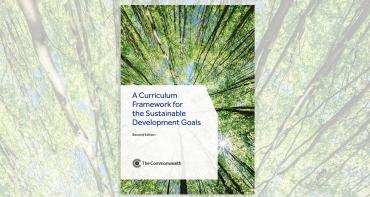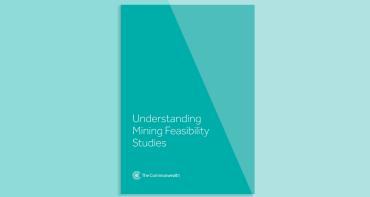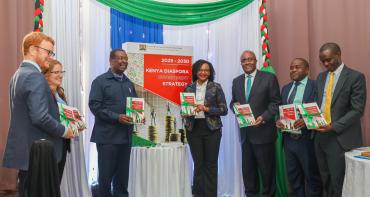We need to move beyond simplistic measures of development and reconcile sustainable management of oceans with economic and social needs - Deputy Secretary-General Deodat Maharaj

Many small island developing states are thought to have economic strength because they enjoy middle income status, and are therefore considered well-positioned to achieve their development goals. However, the reality is often the opposite.
Image

|
Their size, remoteness and dependence on sectors such as tourism and agriculture makes them vulnerable to global economic shocks. Their smallness means they are prone to country-wide impacts from natural disasters such as hurricanes, cyclones and floods, affecting both lives and livelihoods. Rising sea levels threaten to physically reduce their landmass as well as their ability to produce food.
Put simply, small island developing states face massive challenges disproportionate to their ability to cope. Although 69% of small island developing states fall in the middle income group commensurate with their GDP per capita, these countries are highly fragile. A middle income classification can at times seem a temporary phenomenon - one natural disaster can have enormous consequences.
This we witnessed when, in 2009, a tsunami devastated the Pacific nation of Samoa, costing almost $150 million in damage - equivalent to a quarter of its GDP. When Hurricane Ivan stuck Grenada in the Caribbean five years earlier, the cost of the devastation reached $1 billion – as much as two years GDP.
These realities have been laid bare this week at the International Conference on Small Island Developing States (SIDS 2014) in Samoa, with delegates from governments, multilateral organisations and international financial institutions.
The Commonwealth is home to over half the world’s small island developing states, and as an institution, has engaged in advocacy and policy research on behalf of our constituents for over four decades. During this week, we have been sharing practical ideas on how to tackle some of these issues.
The first is to revisit the income measure that determines whether a country can access affordable loans from international financial institutions. For many small island developing countries, a middle income classification based on per-capita income can be a temporary and costly yardstick.
The Commonwealth has developed a ‘resilience index’ that supports the use of vulnerability as a criteria for determining international development support. We are also advocating for the vulnerability of small states be taken into account by international financial institutions when ranking the economic health of small states.
A second issue is to look beyond the challenges of the small island developing states in terms of their limited land-based resources. Many have jurisdiction over extensive areas of ocean space with exclusive rights to sustainably utilise these resources. This rich endowment should ensure food security, support livelihoods and generate income. Yet often, small island developing states are unable to fully tap their resources due to limited investment and capacity, relying instead on third parties. As a result, the financial, and other benefits that should accrue are often limited.
The oceans are under increasing pressure from fisheries, shipping, mineral and petroleum activities, coastal tourism and recreation. Sometimes a more co-ordinated strategy that maximises the long-term benefits flowing from activities right across the ocean space could result in better social and economic outcomes for small island developing states. The interconnected nature of the oceans also means that the impacts of human activities may have unintended consequences elsewhere in the wider ocean environment, which are far reaching but as yet not fully understood.
Unless we act collectively, the oceans’ ability to sustain future generations will be severely compromised, if not lost altogether. Those most affected will be the most vulnerable. New approaches are needed, at the local, regional and global levels. This will enable more sustainable and integrated use of ocean resources and reverse current piecemeal approaches leading to over-exploitation.
Small island developing states deserve to get a fair return from their resources. It is also vital to link sustainable environmental management of ocean resources with economic development. Such initiatives must deliver acceptable economic benefits both to those who invest in harnessing resources and to local people and communities. Ultimately though, without investment and protection to ensure healthy, productive and biologically diverse oceans, none of the above is possible.
Unless these challenges are addressed – of building resilience and moving beyond simplistic measures of development, and reconciling sustainable management of oceans with economic and social needs – small island developing states will be unable to make good on their potential.
The Commonwealth will continue to support its smaller members as they seek to grapple with these concerns. In the years to come, we may look back on this summit in Samoa as being a turning point. But it is up to all of us – intergovernmental organisations, nations, citizens alike – to ensure it is genuinely historic.



